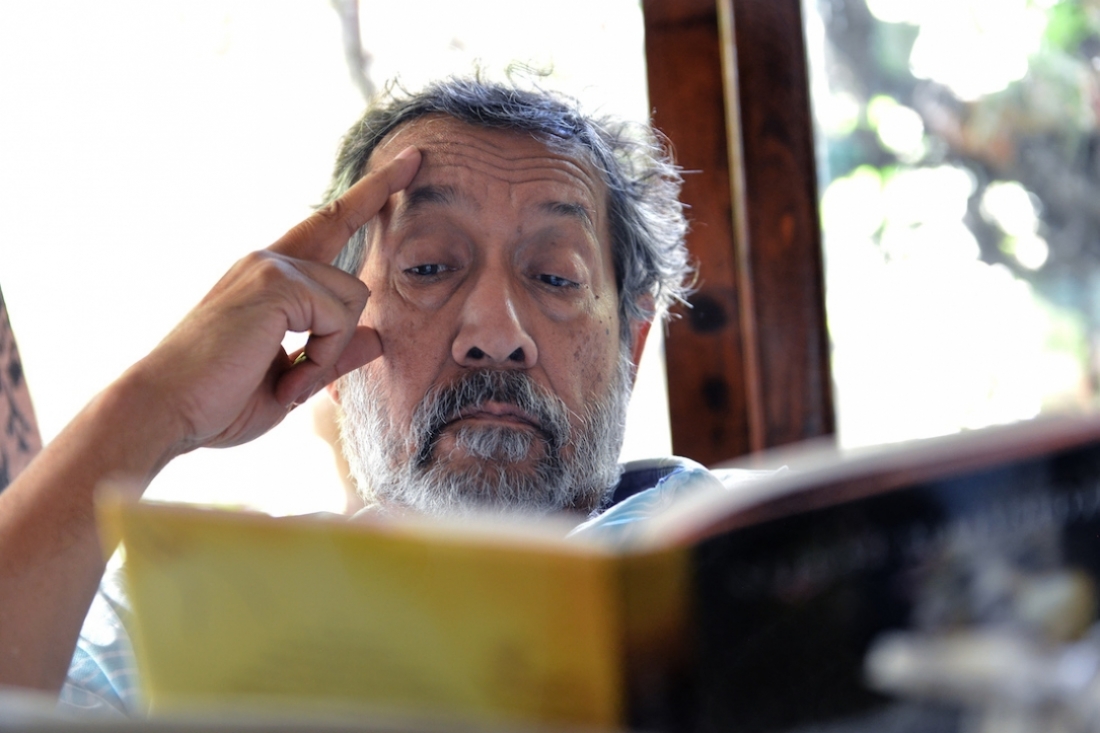
Image courtesy: Saswata Bhattacharya for the JCB Prize for Literature

Image courtesy: Saswata Bhattacharya for the JCB Prize for Literature
The film looks outward, the book looks inward. For Pradip Krishen, who is well acquainted with both these mediums through his journey as an environmentalist, filmmaker and writer, it is the underlying story that has always been of utmost importance. On the one hand, he is working at the impossible task of landscaping the great Indian desert. On the other, he is undertaking the task of choosing the best from the vast Indian literary landscape. Between these, we make him pause and ponder.
Which authors or books were your formative influences?
Let's see - I read eclectically and unfocusedly when I was still in college: Hemingway, Joyce, the Greek classics, some big Russian novels, a little poetry: Eliot, Ted Hughes, Sylvia Plath, that sort of thing. But formative? I'd say John Updike for me, above anyone else. I didn't discover him until I was in my 30s but he's stayed with me, and I can read the 4 Rabbit books again and again! But also, a whole lot of non-fiction. Most of what I read today is non-fiction.
One thing that a book can do and a film cannot, and vice versa.
It's hard for a film to get inside a character's head and explore layers of thought or emotion. It's natural for a book to explore the inner life of people, while films are mostly about verbs, 'doing words', action.
Writing today – even fiction – makes environmental destruction an important part of its narrative. Amitav Ghosh’s Gun Island and Shubhangi Swarup’s Latitudes of Longing are some notable examples. I’d like to know your observations…
That's natural, isn't it, for authors to write about urgent concerns. I was looking at the Booker Shortlist today, and at least 3 of the 6 blurbs imply that the shortlisted books are at least partly about urgent ecological problems the world is facing. I'm sorry, I haven't read Amitav Ghosh's Gun Island, not yet.
Can you take us behind your most remarkable creative experience or moment?
It would have to be about writing my second book, The Jungle Trees of Central India. Writing the Introduction to this book was by far the most difficult but also the most exhilarating thing I've done. (It would take too long to explain!)
What is the hardest part of telling a story well?
Being new, different, not treading well-worn paths, while still being engaging
As the Chair of the jury for the JCB Prize for Literature 2019, have you noticed any particular trends in subject matter or approach?
Two or three things struck me - one is a delicious exploration of vulnerability by several young authors. Nothing macho or romantic about them, they were content to bare their weaknesses and hesitancies. Another interesting strand was/is the large number of novels that were situated in the distant, and sometimes the mythological, past. Almost as if writing about the present didn't seem particularly attractive. I think I also noticed a certain evasiveness about real social issues, problems, or something like that.
What book would you send to the leader of a government that imprisons writers?
Maybe 1984. Orwell.
What are you presently working on and what is next?
All my present work is about restoring degrading habitats, mostly in the desert. But the urge to write again has been with me now for the last few years and I know that I can't write until I give up my landscape work. Which will happen by the end of this year.
Text Soumya Mukerji